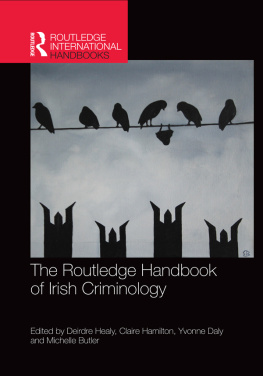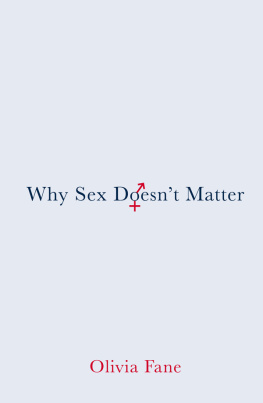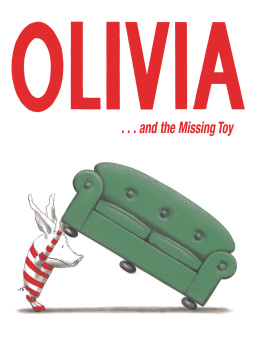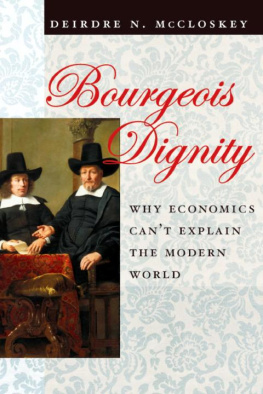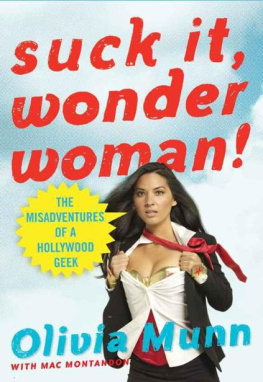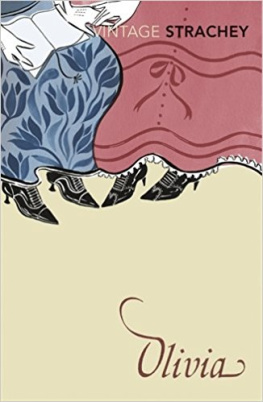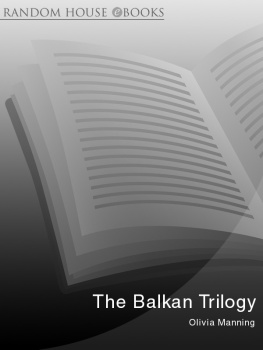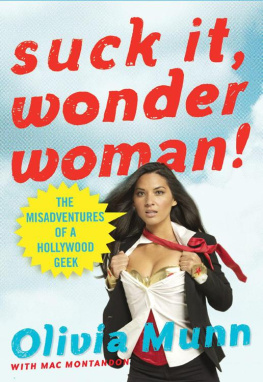David Deirdre - Olivia Manning: a woman at war
Here you can read online David Deirdre - Olivia Manning: a woman at war full text of the book (entire story) in english for free. Download pdf and epub, get meaning, cover and reviews about this ebook. City: Oxford, year: 2015;2012, publisher: Oxford University Press USA - OSO, genre: Non-fiction. Description of the work, (preface) as well as reviews are available. Best literature library LitArk.com created for fans of good reading and offers a wide selection of genres:
Romance novel
Science fiction
Adventure
Detective
Science
History
Home and family
Prose
Art
Politics
Computer
Non-fiction
Religion
Business
Children
Humor
Choose a favorite category and find really read worthwhile books. Enjoy immersion in the world of imagination, feel the emotions of the characters or learn something new for yourself, make an fascinating discovery.

- Book:Olivia Manning: a woman at war
- Author:
- Publisher:Oxford University Press USA - OSO
- Genre:
- Year:2015;2012
- City:Oxford
- Rating:5 / 5
- Favourites:Add to favourites
- Your mark:
- 100
- 1
- 2
- 3
- 4
- 5
Olivia Manning: a woman at war: summary, description and annotation
We offer to read an annotation, description, summary or preface (depends on what the author of the book "Olivia Manning: a woman at war" wrote himself). If you haven't found the necessary information about the book — write in the comments, we will try to find it.
Olivia Manning: a woman at war — read online for free the complete book (whole text) full work
Below is the text of the book, divided by pages. System saving the place of the last page read, allows you to conveniently read the book "Olivia Manning: a woman at war" online for free, without having to search again every time where you left off. Put a bookmark, and you can go to the page where you finished reading at any time.
Font size:
Interval:
Bookmark:
OLIVIA MANNING
A Woman at War

DEIRDRE DAVID


Great Clarendon Street, Oxford, OX2 6DP,
United Kingdom
Oxford University Press is a department of the University of Oxford. It furthers the Universitys objective of excellence in research, scholarship, and education by publishing worldwide. Oxford is a registered trade mark of Oxford University Press in the UK and in certain other countries
Deirdre David 2012
The moral rights of the author have been asserted
First Edition published in 2012
Impression: 1
All rights reserved. No part of this publication may be reproduced, stored in a retrieval system, or transmitted, in any form or by any means, without the prior permission in writing of Oxford University Press, or as expressly permitted by law, by licence or under terms agreed with the appropriate reprographics rights organization. Enquiries concerning reproduction outside the scope of the above should be sent to the Rights Department, Oxford University Press, at the address above
You must not circulate this work in any other form and you must impose this same condition on any acquirer
British Library Cataloguing in Publication Data
Data available
Library of Congress Cataloging in Publication Data
Data available
ISBN9780199609185
Printed in Great Britain by MPG Books Group, Bodmin and Kings Lynn
For John Richetti
In 1969, a journalist from the Guardian, preparing to interview Olivia Manning, did some asking around among friends and colleagues. Most knew Manning was a writer, but few could come up with titles of her novels. Wasnt she rather difficult, someone ventured; others recalled shed had a rough time during the war; and almost everyone seemed to know she was married to the BBC producer, Reggie Smith. Beginning this book, close to forty years after the Guardian interview, I also quizzed friends and colleagues: had they heard of Olivia Manning? Read any of her novels? Discovered anything about her life? Almost everyone knew the name, some had read the Balkan and Levant trilogies (transparently autobiographical novels about Olivias wartime adventures), and no one had heard of Reggie Smith. All remembered Fortunes of War, the 1987 BBC adaptation of the wartime books and recalled that Emma Thompson was terrific as Harriet Pringle, Olivias barely disguised fictional surrogate.
The biographical challenge became clear: while remaining attentive to the wartime experience, I needed to show that Olivia Manning had been a woman at war on a number of fronts. From the time of growing up in Portsmouth, a seaside city she forever despised, to living in London in the 1930s as a young woman with little money but plenty of wit and sexy good looks, through her traverse one step ahead of the Germans across the Balkans and the Middle East, to her immediate post-war years back in Britain where she confronted an indifferent literary culture, she had battled her way through adversity.
At one time or another, all biographers are queried about their subject, asked to explain why they are traveling to libraries, tracking down documents, reading primary texts, manuscripts, letters, diaries, medical reports, and wills, and, whenever possible, interviewing people who knew the person they are writing about. In the case of Olivia Manning, my answer has been simple. Knowing the trilogies were heavily autobiographical, I became curious about the rich and risky life of the writer, and also to wonder what else she had written in addition to these six novels. But as I began my education in her life, I realized I was being drawn to writing her biography because of certain similarities between that life and my own, improbable as this may seem.
Like Olivia, I left school at sixteen and went to work, reluctantly, as a typist. Like Olivia, I survived World War II, far less dramatically, to be sure, since rather than being a woman in her early thirties dodging the Germans in the Balkans and the Middle East, I was a child dodging V1 and V2 rockets sent over London at the close of the war. And like Olivia, I had lived in post-war Austerity Britain, less troubled than she by poor food, bombed-out streets, and washed-out faces, since I was used to ration books and doing without. And when I read Olivias descriptions of the stress of wartime conditions in Bucharest bringing about dirty fingernails, sour breath, nicotine-stained fingers, I recalled my own memories of sleeping in the Clapham South tube station: it reeked of too-long brewed tea, soured milk, sweaty bodies wrapped in multiple jumpers to stave off the icy drafts that came hurtling through the tunnels. Even though I was disinclined to make a fictional appearance in the biographical narrative (could I have become Olivias wartime friend?) or to weave my own memories with her autobiographical recollections, I readily recognized much of her experience and I shared her ambition to move to a world elsewhere (in her case away from the provincial swamp of Portsmouth and in mine far from the dismal seediness of South London). Id like to think that this sort of empathetic affiliation makes for good biography.
At a cultural moment of nostalgic reconstruction of World War II, with the Imperial War Museum offering the Blitz Experience, Jamie Oliver urging Britain to adopt a healthy wartime diet featuring many root vegetables and not much meat, and a global recession turning peoples thoughts to allotments and make-do-and-mend, a reconsideration of Olivia Mannings wartime fiction would seem to be in order. But she did not just write about World War II. She published novels about the struggle for survival by young women in 1950s still-diminished London, about desecration of the environment through uncontrolled commercial development, and about the painful adjustment to post-war English life for young men (her work is especially notable for its subtle portrayal of male, sometimes homosexual, characters). And in her short stories, relying upon memories of her Portsmouth childhood, she writes brilliantly about unhappy children trapped in an adult world of quarrels about money and disappointed expectations.
For thirty-five years after the end of World War II, she was a visible, hard-working presence in the British literary marketplace: as the author of thirteen published novels, two volumes of short stories, and four works of non-fiction, and as a regular writer on contemporary fiction for The Spectator, The Observer, and the Sunday Times. Over her long career, she reviewed some four hundred novels and many collections of short stories. But despite becoming a polished woman of letters with a wide circle of intelligent friends culled from Reggie Smiths world of BBC colleagues and actor pals, and from her own group of fellow-writers such as Francis King, Margaret Drabble, and Beryl Bainbridge, she felt herself exiled as much from the London literary establishment as she had from the provincial world of Portsmouth. Claire Tomalin remembers her in the 1970s as slim and chic, hair well done, lively face, the very embodiment of a successful and worldly literary woman, yet despite her smart appearance and confident manner, Manning bitterly resented many of her female contemporariesfigures such as Iris Murdoch, Muriel Spark, and Edna OBrienwho, she believed, received an unwarranted amount of critical attention and were paid more money than she ever commanded for her novels and reviewing. But even though she never made the short list for the Booker prize and never got that solo
Next pageFont size:
Interval:
Bookmark:
Similar books «Olivia Manning: a woman at war»
Look at similar books to Olivia Manning: a woman at war. We have selected literature similar in name and meaning in the hope of providing readers with more options to find new, interesting, not yet read works.
Discussion, reviews of the book Olivia Manning: a woman at war and just readers' own opinions. Leave your comments, write what you think about the work, its meaning or the main characters. Specify what exactly you liked and what you didn't like, and why you think so.

